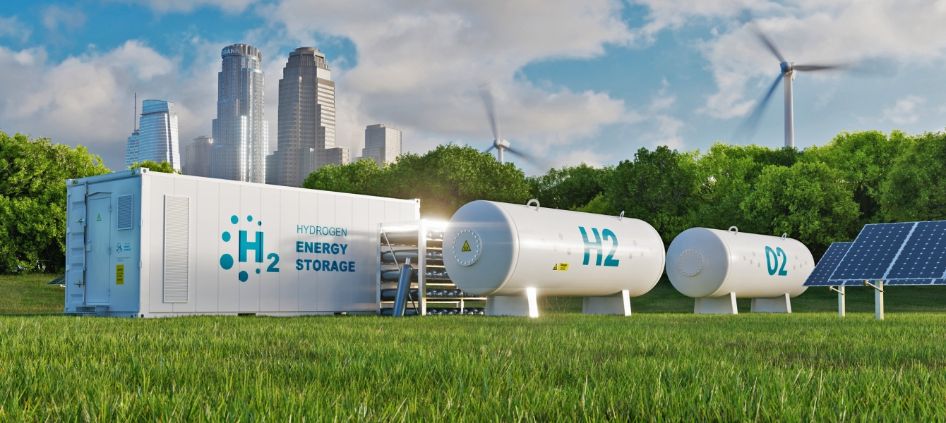As the COP27, the most recent round of international climate talks, is about to begin in Egypt, it’s important to consider how climate change will unevenly affect Africa and what each individual can do to address it, writes Joseph Dana.
A weekly newsletter about technology and its effects on society, called Exponential View, used to have Joseph Dana as its senior editor. Additionally, he served as the chief editor of emerge85, a lab that studies the evolution of emerging markets and how it affects the rest of the world. Twitter: @ibnezra
Africa’s transition to renewable energy is not going well at all. Although the continent has abundant wind and solar potential as well as the raw materials like cobalt required to make green energy possible, progress towards a future powered by green energy has at best been uneven.
The worst-case scenario for green energy is best illustrated by South Africa, which is the most industrialized nation on the continent. Over 80% of the nation’s electricity comes from coal, making it the 13th largest source of greenhouse gases in the world and home to roughly 60 million people.
Natural gas and hydropower are increasingly used in place of coal across the continent. The overall use of renewable energy is still significantly below the average worldwide.
It’s time to look closely at how climate change will unevenly affect Africa and what anyone can do about it as the most recent round of international climate talks, COP27, is about to start in Egypt.
The national electric utility, Eskom, operates a network of outdated coal-fired power plants that are the root cause of South Africa’s energy problems. Eskom is unable to maintain the lights after nearly ten years of poor management and alleged corruption under former president Jacob Zuma.
Rolling blackouts, also referred to as load shedding locally, are frequently caused by malfunctioning power plants. Due to load shedding, which can result in several hours per day without electricity, the economy is suffering greatly as a result of the energy shortage.
The power crisis is now the government’s top priority, but President Cyril Ramaphosa has found it challenging. Despite the fact that the country is endowed with an abundance of wind and solar resources that are perfect for renewable energy projects, South Africa has a number of laws that are intended to ensure Eskom has a monopoly over energy production.
To encourage private energy producers to increase their output, Ramaphosa has reversed some of these provisions. In an effort to control the impact of load shedding, the city of Cape Town built hydroelectric energy solutions. These initiatives, however, are merely band-aid fixes for the bigger issue.
For the money required to finance South Africa’s transition to renewable energy, Ramaphosa is looking to foreign governments and investors.

According to a study by Stellenbosch University’s Blended Finance Taskforce and Centre for Sustainability Transitions, South Africa will need to spend $250 billion over the next 30 years to shut down its coal-fired power plants and make the switch to renewable energy. With wealthy nations, the South African government is negotiating $8.5 billion in grants and loans with favorable terms for the environment.
This transition and its financing were hot topics at the COP26 climate summit in Glasgow and will be this week in Egypt.
To pressure governments into honoring their commitments, South Africa plans to use COP27 as a platform to call for deeper support of “just transitions” in African energy transitions first.
According to Environment Minister Barbara Creecy, South Africa will push for the creation of a Just Energy Transition Financing Framework that is centered on the needs of the people. In comments to the South African press, Creecy argued that COP27 should be seen as an “implementation COP,” including by ensuring that the gap between climate finance pledges and actual flow was closed.
“We need to rebuild trust between developed and developing countries by fulfilling commitments [and] we need clear commitments to supporting just transitions in developing countries,” she said.
The world’s additional funding won’t be enough to solve South Africa’s energy issues on its own. One factor contributing to the nation’s existential energy crisis is internal corruption and flagrant resource mismanagement.
The larger point, however, is that COP27 should focus on how wealthy nations should only support energy transitions in developing nations. There is growing worried (and rage) that wealthy nations are continuing exploitation practices in Africa with regard to energy transitions.
As the source of essential raw materials for green energy projects, African nations continue to see their resources shipped off to locations like China and Europe with little attention paid to local needs. Extreme weather events brought on by climate change are a major concern for authorities throughout the continent because of the continent’s rapidly urbanizing and expanding population. Approximately 4% of the world’s greenhouse gas emissions come from Africa, one of the least developed continents. But the effects of climate change on it will be disproportionate.
During COP27, these issues will be resolved. Undoubtedly, big promises and commitments to support green energy financing will be made to African nations.
However, it is unlikely that these promises will ultimately be fully fulfilled. Rich nations will, at best, promise to lend money to developing nations, such as South Africa, to help them transition to green energy, but such measures neither address the underlying causes of the issue nor safeguard present and future generations.
Under the cover of global green energy transitions and climate change, the heinous history of exploitation by foreign powers continues in Africa. This reality must be taken into account when charting a course for a greener future.
Reference: https://www.euractiv.com/section/climate-environment/opinion/the-exploitation-of-africas-green-energy-transition/
